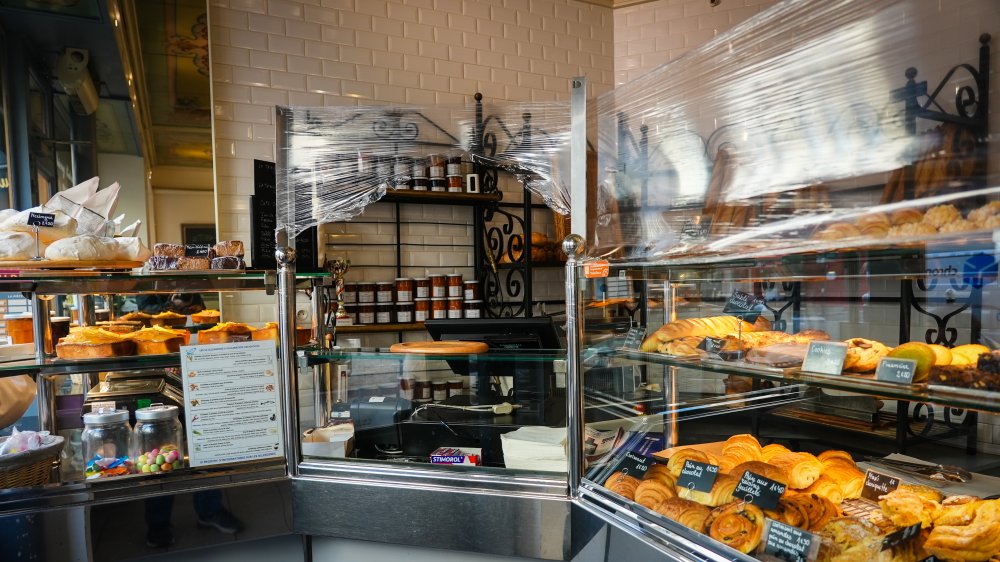The Real Reason Bread Tastes Better In France
Nothing makes us say "oui, oui" more than the smell, taste, and texture of warm French bread. It just has that je ne sais quoi that keeps us wanting more. Chewy and fragrant, French bread is unique in that France has laws in place that require those beautiful loaves only contain flour, water, yeast, salt (via Love to know). Affectionately referred to as "the Bread Decree," French law also stipulates that a baguette must weigh 250 to 300 grams, and it must be 55 to 65 centimeters long (via Frenchly). And you thought your homeowner's association was bad about the length of your grass!
All those rules can be traced back to the French Revolution in 1789. If you remember, famine, caused by poor flour and high bread prices, was one of several factors that caused citizens to revolt. Consequently, when a new government was established, controlling the price and quality of bread was a central way of keeping French peasants and workers happy. French bread is clearly important to the country's history and the culture of the French people, but do you want to know the real reason bread made in France tastes better than pretty much any other place you can buy it?
What makes French bread taste oh so good
Per Paste Magazine, some people believe that the reason French bread tastes so much better than bread in the United States has everything to do with the high amounts of gluten French bakers use. But Elizabeth Dyck, an agronomist and grain advocate, placed greater importance on the quality of all the ingredients and how long the bread is fermented – the process where yeast serves as a catalyst that changes the sugar into carbon dioxide, making the dough rise. Bake magazine says the longer your bread ferments the richer the flavor and texture. For French bread, longer fermentation means we get the chewy texture and nutty flavor that has us wanting to eat those baguettes with butter on a regular basis.
Dyck also mentioned to Paste that she noticed French wheat farmers who bake bread like to experiment by mixing different grains together, implying their flour blends could also contribute to why French bread is so darn good. She further noted that unlike in the U.S., bread is ingrained in French life and culture and is a vital element of the typical French meal. Dyck observed, "You don't need much to make it into a really exciting dining experience. Smear a little cheese or butter, a couple of fresh peppers, [and] it becomes much more of a central focus of a meal."

